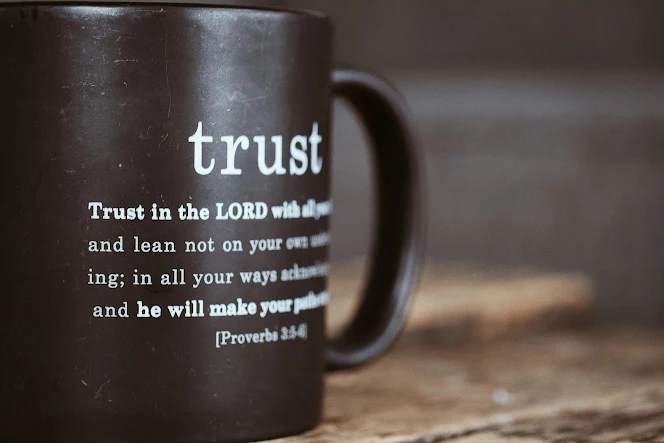Genesis 33 Explained in Detail
Genesis 33 describes the long-awaited reunion between Jacob and his twin brother Esau after years of separation. This chapter follows Jacob’s anxious anticipation of meeting Esau, his careful preparation, and the surprising outcome of their encounter. Below is a detailed breakdown:
1. Jacob Sees Esau Approaching (Genesis 33:1-3)
Verse 1: Jacob lifts his eyes and sees Esau coming with 400 men. This number suggests a possible military threat, reinforcing Jacob’s fear from the previous chapter (Genesis 32:6-7). He had anticipated hostility from Esau, who had once vowed to kill him (Genesis 27:41).
Verse 2: Jacob arranges his family strategically. He places his concubines (Bilhah and Zilpah) and their children at the front, Leah and her children in the middle, and Rachel with Joseph last. This formation implies an order of protection, with Rachel and Joseph, the most beloved, in the safest position.
Verse 3: Jacob, demonstrating humility, goes ahead of his family and bows to Esau seven times. Bowing seven times was a traditional act of great respect in ancient Near Eastern culture, often used when approaching kings or high-ranking figures.
2. Esau’s Unexpected Warmth (Genesis 33:4-7)
Verse 4: Instead of reacting with hostility, Esau runs to Jacob, embraces him, falls on his neck, kisses him, and they both weep. This mirrors the parable of the prodigal son (Luke 15:20), symbolizing reconciliation. Esau’s actions show that his anger has dissipated, and he has no intention of harming Jacob.
Verses 5-7: Esau asks about the women and children. Jacob introduces them in groups, and each group bows before Esau. This continued display of humility reinforces Jacob’s desire for peace.
3. The Gift and Esau’s Generosity (Genesis 33:8-11)
Verse 8: Esau inquires about the large group of animals Jacob had sent ahead. Jacob explains they are a gift to find favor in Esau’s sight.
Verse 9: Esau initially refuses, saying, "I have enough, my brother; keep what you have for yourself." This suggests Esau is already prosperous and does not need Jacob’s wealth.
Verse 10: Jacob insists, saying receiving Esau’s favor is like seeing the face of God. This statement reflects Jacob’s spiritual journey—he had just wrestled with God in the previous chapter (Genesis 32:30) and now sees divine grace in Esau’s acceptance.
Verse 11: Esau ultimately accepts the gift after Jacob insists. In Middle Eastern culture, accepting a gift confirmed a bond of peace.
4. Esau’s Offer and Jacob’s Response (Genesis 33:12-17)
Verse 12: Esau offers to accompany Jacob back to Seir, his homeland in Edom.
Verses 13-14: Jacob politely declines, citing the slow pace needed for his children and livestock. He promises to meet Esau in Seir but never actually goes there. Instead, he heads toward Shechem (Genesis 33:18). Some interpret this as a sign of Jacob's continued distrust of Esau, while others see it as a practical decision.
Verse 15: Esau offers to leave some of his men with Jacob for protection, but Jacob declines, again emphasizing his desire to travel at his own pace.
Verse 16: Esau returns to Seir, while Jacob takes a different path.
Verse 17: Jacob settles in Succoth, building a house and shelters for his livestock, indicating a temporary stay before reaching Canaan.
5. Jacob in Shechem and His Altar (Genesis 33:18-20)
Verse 18: Jacob arrives safely in Shechem, in Canaan, fulfilling his journey back to the land of his ancestors.
Verse 19: He purchases land from Hamor, marking his first legal claim in Canaan. This act signifies the beginning of Israel’s permanent settlement in the Promised Land.
Verse 20: Jacob builds an altar and names it El-Elohe-Israel ("God, the God of Israel"), publicly affirming his faith and acknowledging God's role in his journey.
Key Themes and Lessons
-
Reconciliation and Forgiveness: Esau’s unexpected kindness demonstrates the power of reconciliation, even after years of conflict.
-
Humility and Respect: Jacob approaches Esau with deep humility, which helps defuse any potential hostility.
-
God’s Protection and Faithfulness: Despite Jacob’s fears, God ensures his safe return, fulfilling His promise (Genesis 28:15).
-
New Beginnings: Jacob’s purchase of land and building of an altar marks a significant step in his spiritual journey and Israel’s history.





No comments:
Post a Comment